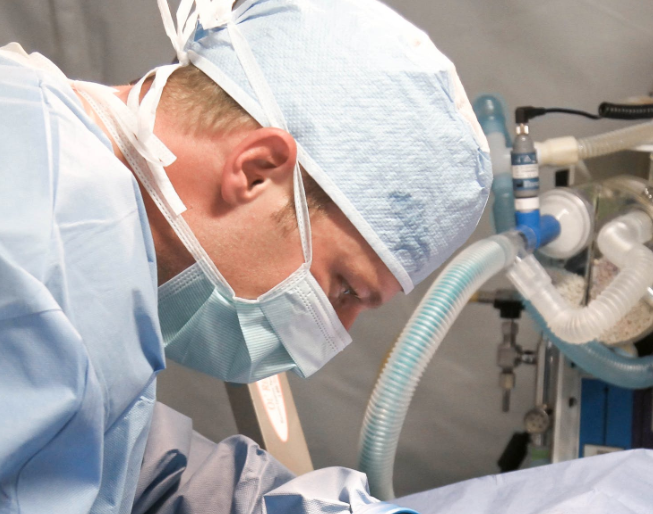On the surface, doctors, nurses, and X-ray machines may seem like the most important things in a hospital. To be fair, those are all essential items, particularly the doctors and nurses. However, one thing that’s rarely seen inside a hospital but is indispensable to its daily operations is the boiler system. If the boiler system in a hospital were to shut down, it’s not an exaggeration to say the whole hospital would have to shut down. To explain, let’s take a look at all the ways boilers are used in hospitals.
Heat
 This is probably the most obvious use of boilers in any building, including hospitals. The steam produced by boilers gets pumped throughout the hospital and is responsible for keeping both patients and staff warm throughout the day and night. Even in warmer climates, most hospitals need their boiler working hard early in the morning to make sure every room in the hospital reaches a comfortable temperature.
This is probably the most obvious use of boilers in any building, including hospitals. The steam produced by boilers gets pumped throughout the hospital and is responsible for keeping both patients and staff warm throughout the day and night. Even in warmer climates, most hospitals need their boiler working hard early in the morning to make sure every room in the hospital reaches a comfortable temperature.
Humidity
In hospitals, keeping a comfortable temperature is important, but maintaining the right level of humidity can be just as important. For the most part, the relative humidity inside a hospital needs to be somewhere between 30% and 60%, depending on the specific hospital. Certain viruses, most notably the flu, are more likely to survive in environments that have particularly high or particularly low humidity. The same is true for the growth of certain types of mold and bacteria.Obviously, a hospital needs to limit the presence of these pathogens as much as possible. This is where a good boiler system comes in handy, as the steam produced helps keep the relative humidity inside the hospital at an appropriate level. After all, people inside hospitals are usually the most vulnerable to diseases and harmful substances.
Sterilization
Hospitals use a wide array of medical tools and instruments, especially those used to perform surgeries. Of course, those utensils need to be perfectly clean before their used on a sick patient, but not just clean, sterilized. This is another important use of boilers in hospitals. A portion of the steam produced by boilers gets pumped into an autoclave sterilizer, which is usually located in a lab or surgical area. The hot steam helps to kill any germs and bacteria on medical tools, making sure they are free of any harmful micro-organisms.Laundry
Most people who visit hospitals never see the laundry room, but if they did, they’d understand the massive amounts of laundry hospitals do on a daily basis. After all, patients need all of the gowns, sheets, and towels they use to be completely free of germs. Thus, hospital boilers need to produce all the steam necessary to heat the water used in the laundry room. In fact, it’s common for the laundry room of a hospital to have its own boiler that’s separate from the main steam plant, which tells you how much hospital laundry rooms rely on steam from boilers.Kitchen
Much like the laundry room, most people don’t realize how much hospital kitchens rely on the boiler system. Remember, they have to prepare meals for every patient in the hospital, as well as most of the staff and visitors. Cooking all of those meals requires a lot of hot water, not to mention all the dishes that need to be cleaned and utterly spotless before they can be used again. Keeping that in mind, it should be easy to see why the hospital boiler system plays an important role in the kitchen.The Best Hospital Boiler
Clearly, hospitals need a boiler that’s reliable and operating at a high level in order to meet their huge steam needs. Many hospitals have seen a significant increase in their efficiency and a significant decrease in their energy costs after installing Miura boilers into their steam plant. Contact a Miura representative so you can hear about all the features that make our boilers perfect for hospitals of all sizes.Contact Miura today to learn more about choosing a steam boiler system for your hospital.




